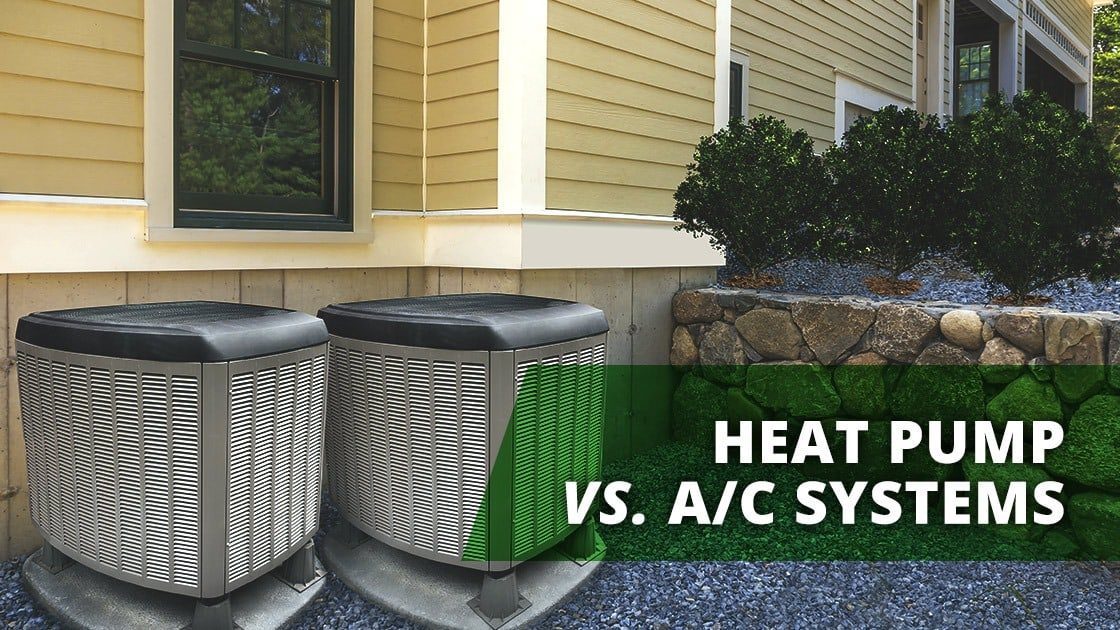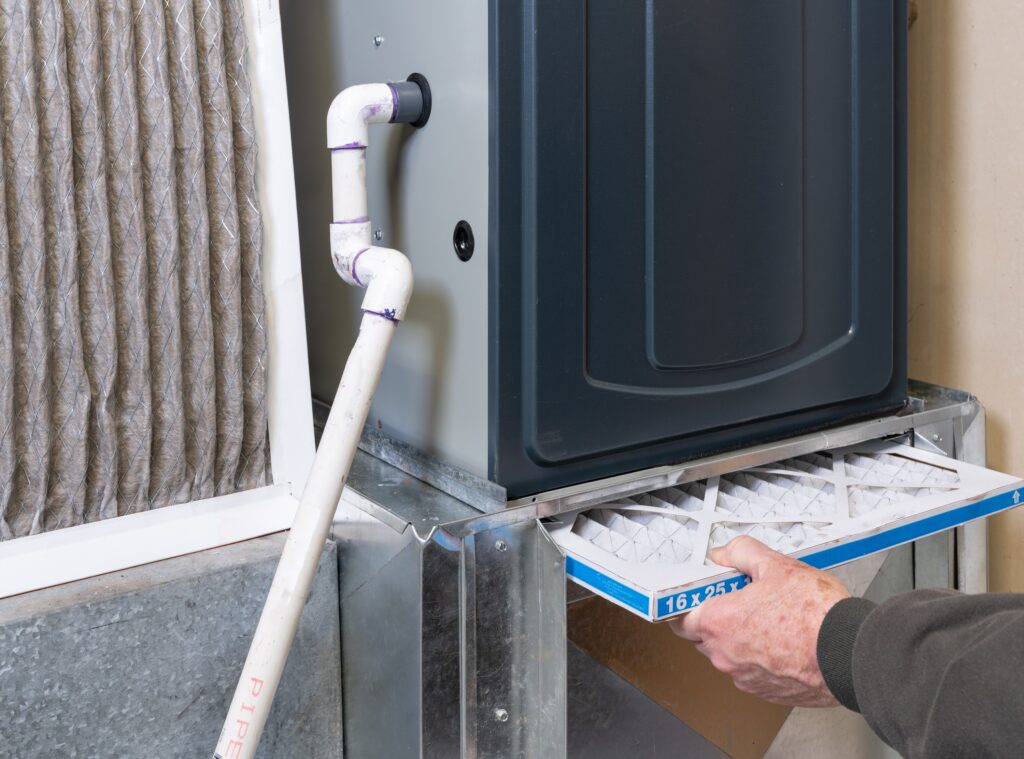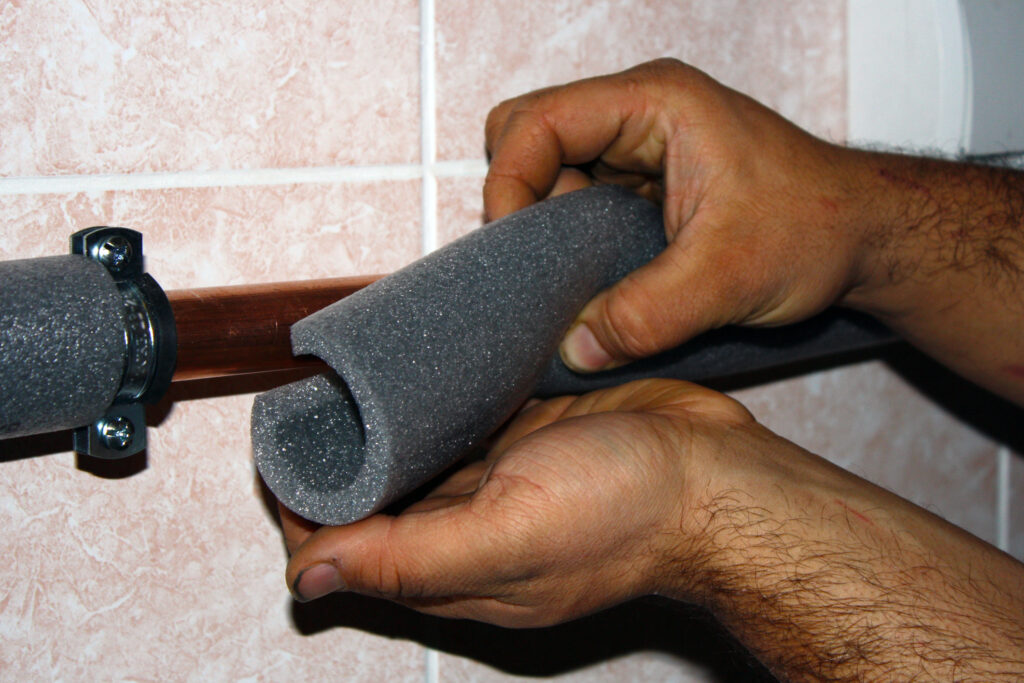
Location, climate, and size are just a few of the important factors to take into account when determining whether an electric heat pump or traditional AC unit is right for you.
This article is an attempt to answer a question we get all the time: “What are the differences between a heat pump vs AC and heating systems?” All homes have unique considerations when it comes to the decisions you make about heating and cooling solutions, so your choice of climate control should reflect that. If you’re looking for even more options, start with our home heating systems comparison page.
With so many different options available and variables to consider, it can be very difficult to figure out what works best for you and your particular situation. Location, climate, and size are just a few of the important factors to take into account when determining whether an Electric Heat Pump or traditional AC unit is right for you.
We’ll start by looking at each solution separately, then we’ll do a more direct comparison of features, pros and cons.
Traditional AC Units
There are many different types of air-conditioning units to consider, but for the sake of simplicity this article will focus on the traditional central air units that are used in most US homes. Of course, in the event that the installation of ductwork isn’t possible in your home, you should also consider High Velocity AC Systems or Ductless Mini Splits as well. If you fall into this group, feel free to contact us for more details about how these solutions can help.
HOW DO THEY WORK?
Traditional central A/C units work by removing heat from inside the home through a refrigerant medium with the help of an indoor coil and outdoor condenser. The warm air is pulled across the evaporator coil, transferring heat from inside the home while changing the refrigerant from a liquid to a gas. The refrigerant is then cycled from the evaporator, which is usually located inside, to the condenser and compressor, which are usually outside. These units cool the refrigerant and compress it back into its liquid state, before returning it to the evaporator to continue its never ending cycle. The resulting cool air is then distributed through your home via ductwork. For a more in-depth explanation of this process, check out the Central Air page.
PROS
Reliability
With routine maintenance from experienced HVAC professionals, a central air system is built to last for 15-20 years, while a heat pump system normally lasts an average of 15 years.
Cleaner Air
Central A/C systems have sophisticated filtration, which include air handlers in each room. This system helps to deliver clean filtered air to every room of your home.
CONS
No Heating Capability
Central air systems only act as cooling solutions, meaning that they need to be paired with a heating system such as a furnace to serve as a full service climate control system. This can be an expensive proposition, as it leads to the upfront cost of purchasing two separate and can mean double the maintenance upkeep and cost.
Space
Central air systems require the installation of extensive ductwork, making them unreasonable for many older or smaller homes that don’t have the necessary space.
Heat Pumps
Heat Pumps can offer a simpler, more environmentally friendly alternative to traditional systems for heating and cooling some homes. There are many different types of heat pump systems, so be sure to check with your manufacturer or HVAC specialist to make sure you understand the differences.
HOW THEY WORK
Heat pumps cool your home in essentially the same way as traditional A/C systems, where a refrigerant cycle absorbs heat from inside of your home and expels it via an outdoor component. However, heat pumps are notable for their ability to distribute warm air either inside or outside the home. This means that heat pumps are also capable of heating your home using a very similar process that they use to cool it.
PROS
All-in-one Solution
Heat pumps give owners the ability to reverse the refrigerant flow, which would transfer heat into the room as opposed to pushing it out. This makes the electric heat pump both a cooling and heating solution, which can reduce the cost compared to installing two separate systems.
Efficiency
The other deciding factor for heat pumps in the minds of most homeowners is their noted energy efficiency. Because these systems redistribute heat instead of generating it, owners typically see significantly lower energy bills.
No Fossil Fuel Use
Heat pumps are able to operate entirely using electricity for both heating and cooling, unlike traditional heating units that usually operate using heating oil or natural gas. This means that you can run your climate control without the need for fossil fuels, or a constantly burning flame in your home!
CONS
Startup Costs
Although the long term energy savings are great, the startup cost of installing a heat pump system can be high given its two component design. When compared to the initial cost of installing separate heating and cooling systems, heat pumps are often less, but when looking to supplement a heating or cooling system that is already in place, this can be a higher cost.
DISPELLING A MYTH ABOUT HEAT PUMPS
In the past, heat pumps were known to be less effective at heating homes in extremely cold environments, as it is more difficult to extract heat from extremely cold air. While there are still heat pumps in operation that suffer from this problem, most modern heat pumps will not have these issues and can effectively heat air in temperatures down below 0° Fahrenheit.
So… Heat Pump vs AC and Heating Units – What’s best for me?
Do you have AC or heat already?
If you already have a AC or heating unit in place, the up-front costs will probably be much lower to simply install the other half of the system.
Are you concerned about your monthly energy bill?
Modern heat pump systems will almost always be more cost effective in terms of monthly energy usage.
Are you concerned about the environment?
Most other heating solutions on the market use either oil or natural gas to heat the air for your home, while heat pumps use the more easily renewable electricity.
Do you have oil or natural gas easily accessible?
If you are in a rural or isolated environment where oil or natural gas need to be delivered, or are difficult to access at all, the electrical operation of a heat pump may be a huge positive.
Are you concerned about safety?
While issues with home heating systems are few and far between, the idea of having a fire burning in your basement to heat your home may be a little worrisome. With a heat pump there is no such concern. Problem solved!
In Conclusion…
There are a lot of factors to be considered, and the technology around home climate control is constantly evolving. At the end of the day, it’s probably best to consult an HVAC professional about your particular needs and situation before making a decision regarding the heat pump vs AC debate. As always, the team at Unique Indoor Comfort would love to help! Give us a call, even if you just want to ask a few questions about heat pumps!



